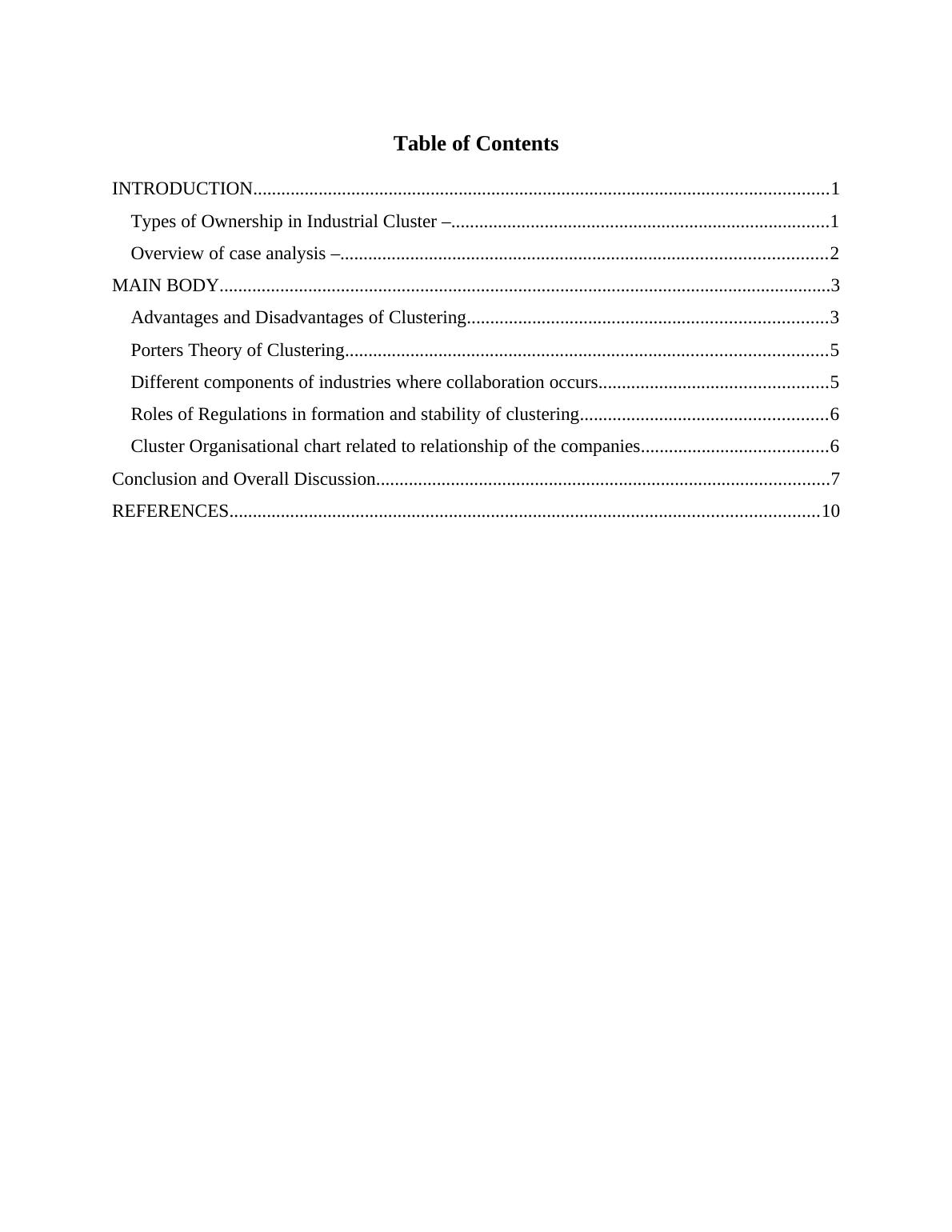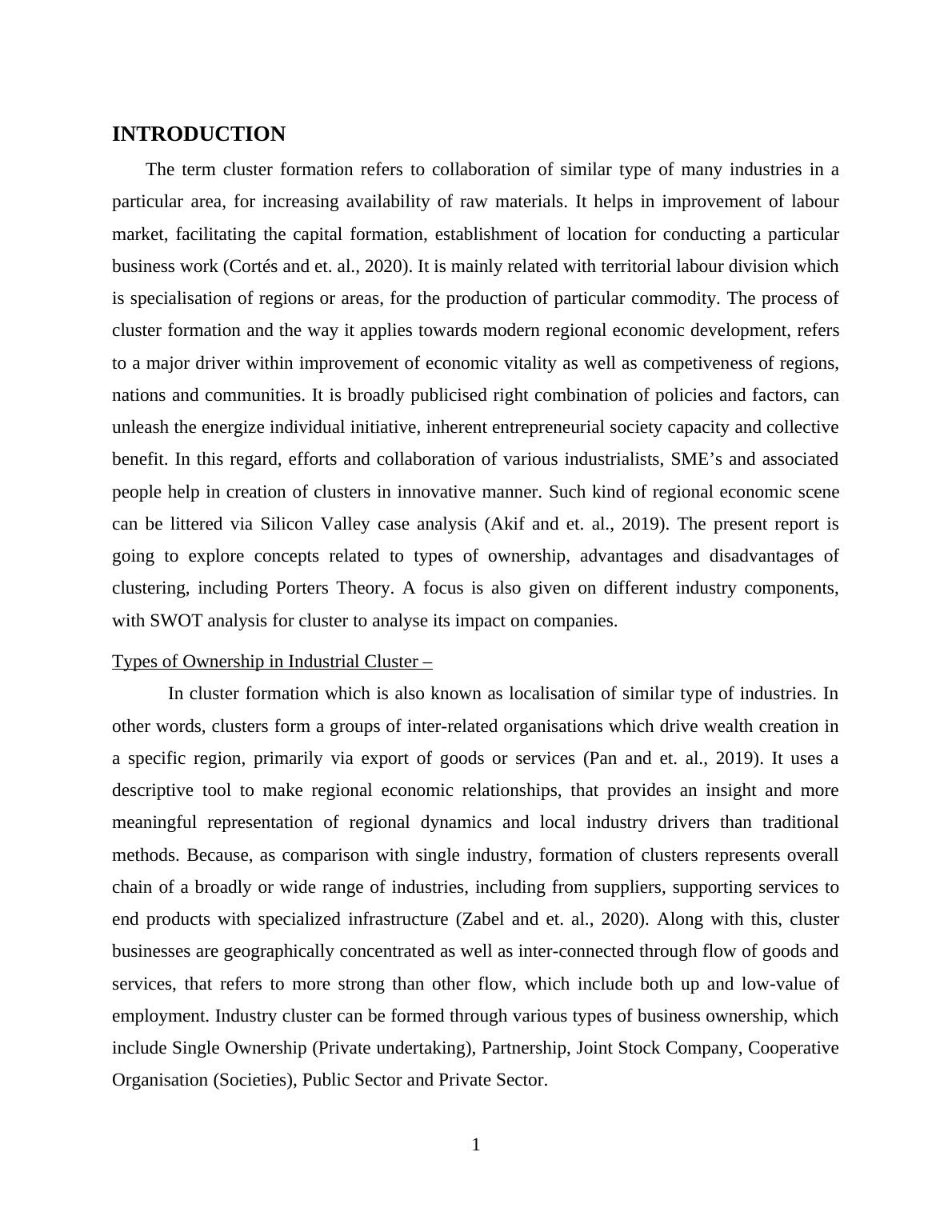Types of Ownership in Industrial Cluster
Write a report comparing the ownership, structure, and operations of publicly and privately-owned railway systems, highlighting the benefits of vertical and horizontal separation.
15 Pages4183 Words48 Views
Added on 2023-01-10
About This Document
This report explores the types of ownership in industrial clusters, including single ownership, partnership, joint stock company, cooperative organization, public sector, and private sector. It discusses the advantages and disadvantages of clustering, Porters Theory of Clustering, and the role of regulations in cluster formation. The report also provides an overview of case analysis and different components of industries where collaboration occurs.
Types of Ownership in Industrial Cluster
Write a report comparing the ownership, structure, and operations of publicly and privately-owned railway systems, highlighting the benefits of vertical and horizontal separation.
Added on 2023-01-10
ShareRelated Documents
End of preview
Want to access all the pages? Upload your documents or become a member.
Types and Purposes of Organizations in Business Environment
|14
|4133
|57
Understanding Business Organizations - Types, Functions, Structure and Culture
|8
|2055
|205
International Business: Analysis of McDonald's Expansion Strategies
|18
|4752
|437




